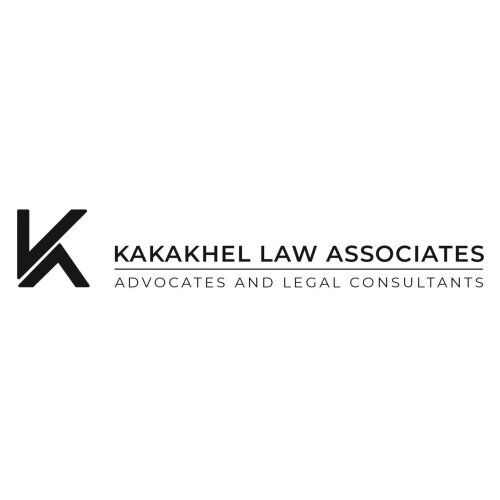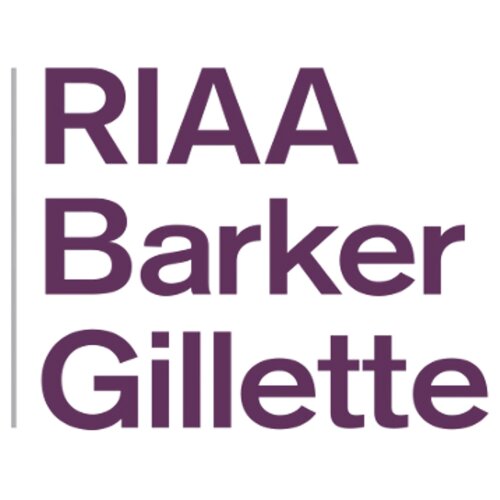Best Conveyancing Lawyers in Islamabad
Share your needs with us, get contacted by law firms.
Free. Takes 2 min.
Free Guide to Hiring a Real Estate Lawyer
List of the best lawyers in Islamabad, Pakistan
About Conveyancing Law in Islamabad, Pakistan
Conveyancing in Islamabad, Pakistan refers to the legal process of transferring property ownership from one person to another. This process covers the preparation, execution, verification, and registration of legal documents required for the sale, purchase, mortgage, or lease of real estate. In Islamabad, conveyancing involves compliance with federal and local laws, as well as obtaining approvals from various governmental departments. These could include the Capital Development Authority (CDA), Islamabad Land Revenue Authority, and local property registration offices.
Why You May Need a Lawyer
Conveyancing may seem straightforward, but it often involves complex legal and procedural requirements. Hiring a lawyer can help prevent costly mistakes and provide peace of mind that all legal needs are being met. Common situations where people seek legal help for conveyancing include:
- Buying or selling houses, apartments, or commercial properties
- Transferring property ownership as a gift or inheritance
- Handling disputes over property boundaries, ownership, or rights of way
- Drafting or reviewing sale, purchase, or lease agreements
- Conducting title searches to check property ownership or encumbrances
- Registering property documents with relevant authorities
- Ensuring compliance with zoning, land use, and housing scheme regulations
Local Laws Overview
Conveyancing in Islamabad is regulated by various statutes and government regulations, along with codes specific to the Islamabad Capital Territory. Some key aspects include:
- Registration Act, 1908: All transfer deeds, including sale, gift, or lease, must be registered to give them legal effect.
- Transfer of Property Act, 1882: Lays down the foundational framework for how properties can legally be transferred.
- Capital Development Authority (CDA) By-Laws: CDA approval is mandatory for properties within Islamabad sectors, and their by-laws govern permitted use and transfer procedures.
- Stamp Act, 1899: Payment of stamp duty is required on property transfer documents.
- Local Land Revenue Laws: Govern mutations (intiqal), ownership changes, and verification of titles particularly in rural areas or newly developed sectors.
- Documentation Requirements: These include CNICs, title documents, past sale deeds, no-objection certificates (NOCs), and a series of affidavits and declarations.
Failure to follow these laws can lead to serious issues, including disputes, fraud, or nullification of transfers.
Frequently Asked Questions
What is conveyancing?
Conveyancing is the legal process of transferring property ownership, which includes the preparation, execution, and registration of documents to legally transfer real estate in Islamabad.
Is it mandatory to register a sale deed in Islamabad?
Yes, under the Registration Act, 1908, it is mandatory to register all sale deeds and property transfer documents for the transaction to be legally valid.
What documents are required for property transfer?
Common documents include a copy of the Computerized National Identity Card (CNIC), original title deed, latest property tax receipts, relevant NOCs, mutation documents, and affidavits from buyer and seller.
What is mutation (intiqal) and why is it important?
Mutation (intiqal) is an official process by which the title of property is updated in the land revenue records in favor of the new owner. It is essential for establishing legal ownership in government records.
Can a non-resident Pakistani buy or sell property in Islamabad?
Yes, non-resident Pakistanis (NRPs) can legally buy or sell property in Islamabad but may need to appoint a legal representative or attorney via a power of attorney to facilitate the process.
What are the taxes and duties involved in conveyancing?
Taxes and charges commonly include stamp duty, capital value tax (CVT), withholding tax, and registration fees. The rates may vary based on property type, location, and the parties involved.
How do I verify if the property title is clear?
A lawyer can conduct a title search with the local land revenue office and CDA or relevant development authority to verify that the seller has lawful ownership and the property is free from encumbrances or litigation.
How long does the conveyancing process take in Islamabad?
The process usually takes 2-6 weeks, depending on the availability of documents, required NOCs, and the efficiency of government departments involved.
What are common risks in property transactions?
Risks include fraud, unregistered transfers, outstanding loans or encumbrances, forged documents, disputes over boundaries, and issues in obtaining necessary approvals.
Do I need to be present in person for property registration?
Usually, parties are required to appear before the sub-registrar office for biometric verification; however, in some cases, a legally executed power of attorney can allow a representative to act on your behalf.
Additional Resources
Those seeking information or assistance with conveyancing in Islamabad may contact or consult the following resources:
- Capital Development Authority (CDA): Handles property approvals, NOCs, and sectoral transfers.
- Islamabad Land Revenue Office: Manages land records, mutation, and verification of ownership.
- Islamabad Bar Association: Maintains a list of licensed legal professionals specializing in conveyancing and property law.
- Federal Board of Revenue (FBR): Provides guidelines and rates for property taxes and duties.
- National Database and Registration Authority (NADRA): For CNIC verification and biometric verification services.
- Pakistan Citizens Portal: Government complaints and facilitation service for land and property issues.
Next Steps
If you are considering buying, selling, or transferring property in Islamabad, follow these steps:
- Step 1: Gather all relevant property documents, including ownership and personal identification papers.
- Step 2: Consult a licensed lawyer specializing in conveyancing to review your case and guide you through the legal process.
- Step 3: Conduct a thorough title search and obtain necessary no-objection certificates (NOCs) from the CDA and other authorities.
- Step 4: Have all documentation prepared, executed, and reviewed by your lawyer before registration.
- Step 5: Pay all applicable taxes and duties as assessed by relevant authorities.
- Step 6: Complete the registration process at the local sub-registrar office for legal transfer and update land records through mutation where required.
- Step 7: Retain copies of all documents and receipts for your records and future reference.
A qualified conveyancing lawyer can assist at every step, ensuring the transaction is legitimate, secure, and compliant with all local laws.
Lawzana helps you find the best lawyers and law firms in Islamabad through a curated and pre-screened list of qualified legal professionals. Our platform offers rankings and detailed profiles of attorneys and law firms, allowing you to compare based on practice areas, including Conveyancing, experience, and client feedback.
Each profile includes a description of the firm's areas of practice, client reviews, team members and partners, year of establishment, spoken languages, office locations, contact information, social media presence, and any published articles or resources. Most firms on our platform speak English and are experienced in both local and international legal matters.
Get a quote from top-rated law firms in Islamabad, Pakistan — quickly, securely, and without unnecessary hassle.
Disclaimer:
The information provided on this page is for general informational purposes only and does not constitute legal advice. While we strive to ensure the accuracy and relevance of the content, legal information may change over time, and interpretations of the law can vary. You should always consult with a qualified legal professional for advice specific to your situation.
We disclaim all liability for actions taken or not taken based on the content of this page. If you believe any information is incorrect or outdated, please contact us, and we will review and update it where appropriate.

















